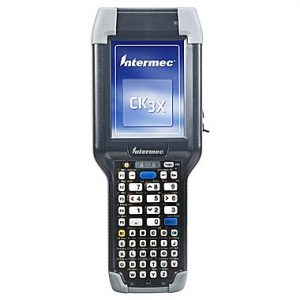Barcode scanners are useful across a diverse spectrum of industries. The tools are so ubiquitous, in fact, that the particular industry that one associates with barcodes and barcode scanners usually has a lot to with the particular industry that one works in or is most familiar with. Anyone who has worked at a grocery store is intimately familiar with the usefulness of a barcode scanner in quickly scanning food items at the supermarket checkout counter. Anyone who has worked in the manufacturing sector understands the usefulness of barcodes in tracking inventory and tracking various warehouse processes—identifying any efficiencies in these areas or anywhere along the supply chain can lead to significant advantages for a business in the manufacturing sector.
The examples of the grocery store and the warehouse illustrate the diverse applications of barcode scanners. Those aforementioned examples also reveal the diversity of the barcode scanners themselves. Barcode readers in a supermarket are usually operated by a single person, and while this is sometimes true in a warehouse as well, the latter environment often utilizes a system of mounting several scanners on one piece of automated equipment to allow for more items to be scanned more quickly. A wide variety of types of scanners and readers for different purposes are available from top brands like Honeywell and Intermec.

Outside of these examples, however, is one industry that also relies on the barcode scanner is the retail industry. Barcode scanners have such a longstanding tradition of use in the retail industry that it can be all too easy for a retail business to rest on its laurels and refuse to optimize its use of a barcode scanner. While many shy away from examining business practices out of fear that increased investment will be required—a brand new, high-tech barcode scanner may be needed, for example—a review of a retail barcode reader system often reveals many areas in which money can be saved as well. Here are some tips for using barcode readers effectively in a retail setting.
Customized Barcode Labels
Many retail stores utilize customized barcode labels for the purpose of aligning the store’s inventory with its barcode readers and barcode software system. Retail stores who have never considered this practice may want to look into the possibility that it is the right choice for their situation. Other retailers, however, may want to consider dropping the practice if they are doing so currently and instead finding barcode readers and a barcode software system that fits with the existing barcode labels that come with the items. Which is the best option is dependent on a number of factors unique to the individual business. Money may be saved either way.
Other Money-Saving Tips
Many barcode software companies offer used and/or refurbished barcode scanners. These scanners can be purchased at a discounted rate and are often still able to perform well in a retail environment. Companies also offer barcode reader rentals that allow a store to try out a new model or a new style of barcode reader on a temporary basis to assess whether it is the right option for a particular retail business before a more significant investment is made. A final tip is to make sure that there is a system in place to ensure the care and maintenance of barcode readers; this saves money by avoiding the purchase of new equipment and costly repair bills.
